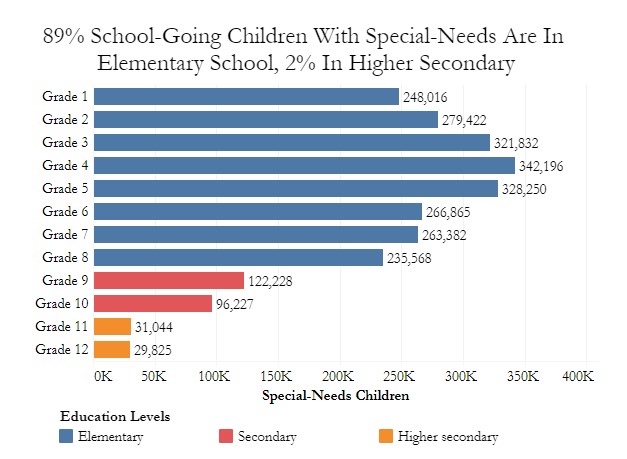
Did you know research revealed that 75% of those who teach special needs students will leave their job within 10 years of starting?
One of the major reasons for this is special education teachers have a higher rate of burnout than is found in most other jobs. Needless to say, teaching at any level can be difficult. Though the pandemic-related problems are certainly new, teaching has always had specific hitches, as does any profession. Furthermore, working with children with special needs is quite stressful as it requires more attention.
Major Challenges of Special Education Teachers
Let us go through some of the big and major challenges that special education teachers are always facing …
The shortage of skilled and professional special education teachers is prevalent all across the world. The BLS projects an 8% growth in employment for K-12 special education teachers by 2026. Also, the pay is still a big question mark. Teachers need to supplement with a side gig. Nevertheless, it’s worth noting that preschool special education teachers are an exclusion, with employment growth expected to increase by 11% through 2026.

Managing the various problems of an inclusive classroom is yet another challenge for special education teachers. Also, the concept of having classrooms that cover both special needs students and students who are evolving typically is becoming a popular one. It brings new challenges for a special education teacher.
Apart from the above-mentioned major problems, here are a few more challenges that special education teachers always face ---
The Bottom Line
The reward of this profession is getting children into the right programs for their requirements. There is a sufficient number of moments that make the job very rewarding. Special Education courses prepare the teaching professionals who want to make a career out of it. It is designed to equip you with the skills needed to effectively work with these students.
Get In Touch
UK – Registered OfficeAsian College Of Teachers Ltd (UK)
27, Old Gloucester Street, London – WC1N 3AX, UK
UK Toll Free: 0-808-189-1203
www.asiancollegeofteachers.co.uk
All SEN Courses are designed, developed and created by Asian College of Teachers Ltd, United Kingdom. These courses are certified by CPD Certification Service UK and endorsed by NCC Education, UK, and Short Courses from CACHE, UK through Laser Learning UK.
Asian College of Teachers (ACT) undertakes a continuous review of its teacher training courses to ensure imparting high quality education. However, there might be circumstances outside of ACT’s control which might affect its stakeholders like if you are planning to teach in a different country, applying for a teaching license, pursuing higher studies or trying to get the certificate approved by the Ministry of Education (MoE) of a particular country then you can do so with the certificate issued by Asian College of Teachers (ACT). However, each country’s Ministry of Education (MoE) or educational bodies set certain standards that are indispensable for the pursuit of higher studies or teaching in schools in that country. So it can be a possibility that you may be able to use the certificate for higher studies or teaching purposes in one country and not in another. Therefore, we strongly recommend that you investigate thoroughly and check with the relevant authorities regarding the acceptance of the certificate issued by us before you enrol on a particular course. ACT strives to offer high-quality education and its certificates can be valuable for various purposes internationally, but still it is crucial for individuals to verify the specific recognition of the certificate in the country they intend to use it, especially for formal education or professional licensing purposes. This approach ensures that the stakeholders make informed decisions regarding their educational and career paths.
© 2026 Asian College of Teachers. All Rights Reserved. Asian College Of Teachers is a trading brand of TTA Training Pvt. Ltd (India) - CIN U80902WB2016PTC215839, Asia Teachers Training Co., Ltd (Thailand) - Registration No. 0105558193360, Asian College Of Teachers Ltd (UK) - Company Number 9939942 & Asian College Of Teachers LLC, (USA) - Federal Tax Identification Number 30-1261596
Designed by kreativewebtech